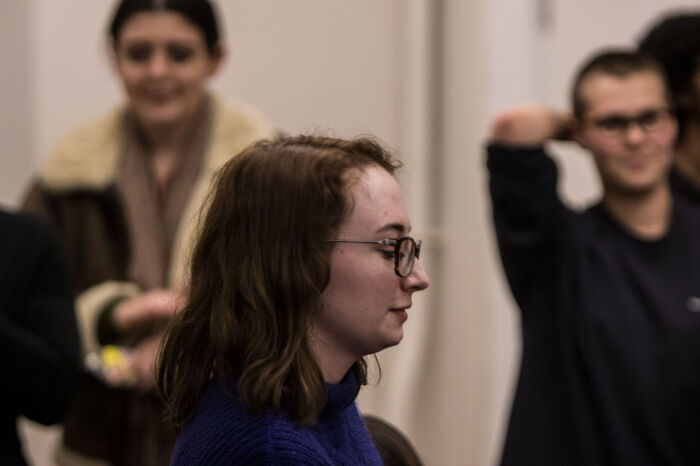
Ahmed, Pungong and Llavero Pasquina victorious in sabbatical elections
This year’s heated access race saw Ahmed elected alongside welfare and rights officer Christine Pungong and university councillor Marcel Llavero Pasquina

Joining the CUSU team next year alongside president Evie Aspinall will be Shadab Ahmed as access and funding officer and Christine Pungong as welfare and rights officer.
They will work alongside Emrys Travis, Claire Sosienski Smith and Matt Kite – who ran uncontested for the roles of disabled students’ officer, women’s officer and education officer respectively – as all beat the vote to re-open nominations.
This year’s CUSU elections saw a 20.9% turnout, with 4,713 votes cast – a fall from last year’s record turnout of 22.5%, in which 4,967 students voted.
No Graduate Union president has been elected due to on-going disciplinary procedures.
Ahmed narrowly edged out Melliar-Smith with a total of 1,671 votes. The race for access and funding officer was perhaps the most hotly contested of the non-presidential positions, with Ahmed accusing Melliar-Smith of defamation following Sunday’s hustings. Ahmed’s victory may be attributed to a high turnout from Christ’s, where he currently serves as JCR access officer.
Ahmed ran on a platform of continuing access work beyond the Cambridge offer, proposing an offer-holder shadowing scheme and funds for academic support for offer-holders from underperforming schools.
Meanwhile, Christine Pungong secured a comfortable victory in the welfare and rights officer election, winning 1,393 votes to Walinase Chinula’s 1,100.
Pungong has pledged to improve mental health provision across all colleges, standardise the intermission procedure and introduce more comprehensive mandatory welfare training for staff.
No Graduate Union presidents have been elected due to on-going disciplinary procedures. Just yesterday, Guha Muhamjar was called for a disciplinary meeting with the Elections Committee, and a warning was issued on Monday, after his campaign sent unsolicited emails to potential voters and supporters reportedly removed the campaign materials of opponents.
Marcel Llavero Pasquina will take up the role of university councillor, having soundly defeated his opponents George Breckenridge and Hugo Larose.
Pasquina’s victory may be attributed to his extensive involvement with organisations advocating for divestment, which has raised his profile following his unsuccessful bid for the same role last year. Pasquina promised to help create a “democratic, transparent, and accountable University” and pledged his support for environmental justice, gender equality and decolonisation.
Emrys Travis ran unopposed for the role of disabled students officer and was elected with 1,516 first preference votes. They told Varsity that they are “encouraged by the strength of the mandate” and noted that this result reveals that “far more students” have voted for the role “than ever before.”
Speaking to Varsity after the results were announced, CUSU education officer-elect Matt Kite said that although it was “obviously not much of a surprise”, “I’m excited to get down to the job”. Kite received 1,729 votes, while 523 voted to reopen nominations.
A by-election will take place at a later date for the role of ethical affairs officer, which did not receive any nominations this term.
The newly-elected officers will begin work in July when they replace the current sabbatical team.

All the election news, in one place
Comprehensive news and analysis on the CUSU/GU elections, collected.
Visit Varsity’s Elections 2018 hub.
 Comment / Cambridge’s tourism risks commodifying students18 April 2025
Comment / Cambridge’s tourism risks commodifying students18 April 2025 News / Cambridge student numbers fall amid nationwide decline14 April 2025
News / Cambridge student numbers fall amid nationwide decline14 April 2025 News / Greenwich House occupiers miss deadline to respond to University legal action15 April 2025
News / Greenwich House occupiers miss deadline to respond to University legal action15 April 2025 Comment / The Cambridge workload prioritises quantity over quality 16 April 2025
Comment / The Cambridge workload prioritises quantity over quality 16 April 2025 Sport / Cambridge celebrate clean sweep at Boat Race 202514 April 2025
Sport / Cambridge celebrate clean sweep at Boat Race 202514 April 2025






